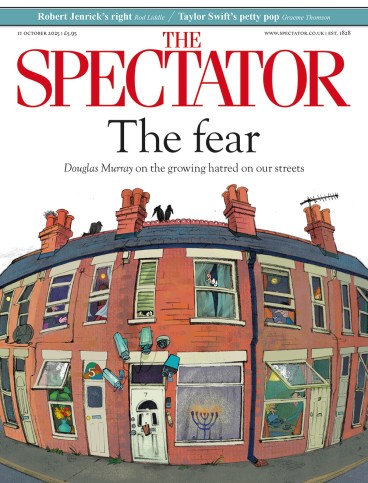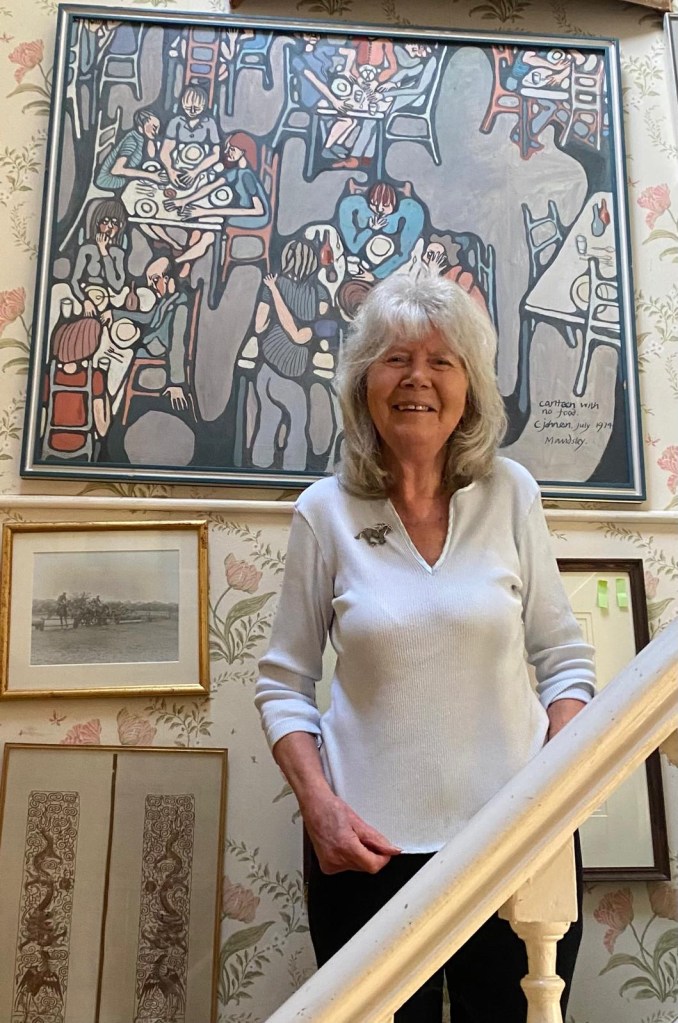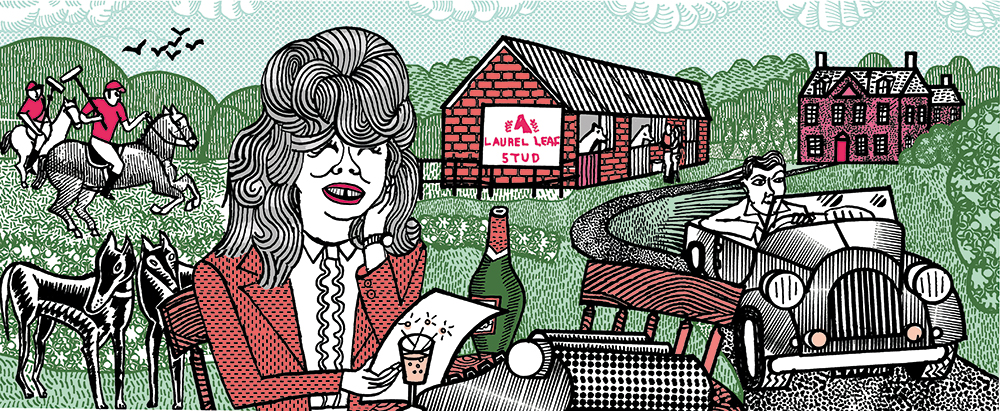
Jilly Cooper, the last great Englishwoman of my lifetime – after Queen Elizabeth II and Debo – has died. The lights are going out all over Rutshire.
During her life, Jilly shone as an author, a friend and a person – the definition of effervescent. You had to meet her only once to become a founder member of the Jilly Cooper Adoration Society.
When she wrote her last book, Tackle!, about a rural football club complete with ‘bitch invasions’ and ghastly Wags, I told her that, in a way, she was the beautiful game, only she gave entertainment to millions not by striking a ball but by putting one word in front of another on her ancient typewriter, Monica. (A friend told me she liked to write topless in the garden, with a glass of wine.)
She enjoyed making people happy, with her gifts of creating a sexier, jollier world for us to escape into
She never used a mobile. Never answered an email. You had to ring her house – a rambling chantry in darkest Gloucestershire – or write to her PA, Amanda, but she always stuck to plan. She was well brought up, as we don’t say now.
She would send cards. If a dog died – she knew there was no grief like it – or if you wrote something, an illegible note in scratchy pen would arrive. I keep cards from her – showing a basket of kittens, a dog with a bandaged paw – in a special box and went clammy and cold with envy to discover she once sent India Knight a brooch (one of Jilly’s talents was to make you feel she loved you as much as you loved her).
A year or so ago, she rang me as if she’d never made a telephone call before. ‘Rachel? Hello? Darling, it’s Jilly Cooper,’ came a husky stammer, as if anxious I’d hang up at the sound of her name. That is charm.
Lunch with Jilly was liquid and filled with laughter. Food – incidental. She preferred children’s tea-party food, so solids might be sausage rolls or cocktail chipolatas, but the main course was champagne. A taxi to the station was always advised.
She was a huge encourager (I’d never have written a word had I not read all of Jilly Cooper). She wanted others to succeed too. She loved gossip, the dirtier and posher the better (I’ll never forget her asking, over lunch: ‘But what is pegging?’). What she enjoyed was making people happy, with her God-given gifts of creating a lighter, sexier, jollier world for us to escape into.
When the then literary editor of this magazine asked me to nominate the English language’s most underrated novel, I chose her Pandora. ‘How interesting,’ Mark Amory noted, shocked I hadn’t chosen some neglected 19th-century Russian. ‘My wife’s choice too!’
I always demanded to write her biography. ‘But I’ve had such a boring life,’ she’d say to bat me off. This wasn’t true. She kept a diary but said it was ‘so racy it probably ought to be burned’. She did my Difficult Women podcast, eventually. ‘Of course I’ll do your podcast, darling, but please, please, please can we go for a very, very boozy, very, very long lunch first…’
She was made a Dame, but no honour could ever reflect the joy she has given so many, almost unto her tenth decade. Age never dimmed her beauty. Like Princess Anne, she understood she belonged to other people and never changed her hairstyle. Age never dimmed her talent, either. Tackle! was as juicy and springy as Riders. As a writer, she shot, she scored – faster and funnier than her rivals.
When I asked her how she managed to write like cream cake – because her novels are naughty and nice – she replied: ‘I think what people like reading about is rich, glamorous people doing naughty things. But also I think they do heroic things. It’s like David and Goliath – there’s usually a character who starts off quite poor, a horse that starts off quite poor, and they do better and beat Goliath in the end.’
A horse! I loved Jilly, and Jilly loved life, in all its wild ups and downs. She faced infertility, infidelity, loss, fame, fortune and success like the brigadier’s daughter she was. She never got the recognition she deserved from a sniffy literary world that sneered at bonkbusters, but she was always generous and she was always kind.
She first came into my life when my mother was in a mental hospital in 1974. Jilly and her husband Leo came to my mother’s exhibition and paid for a painting in cash. When I last saw Jilly at home, in 2024, I took a photo of her on the stairs, in front of the painting ‘Canteen with No Food’, smiling.

I can’t believe that she is no longer here to write all the books we want to read. But at least she is reunited with Bluebell, her greyhound, and all the many dogs, horses and other animals she loved even more than people.







Comments